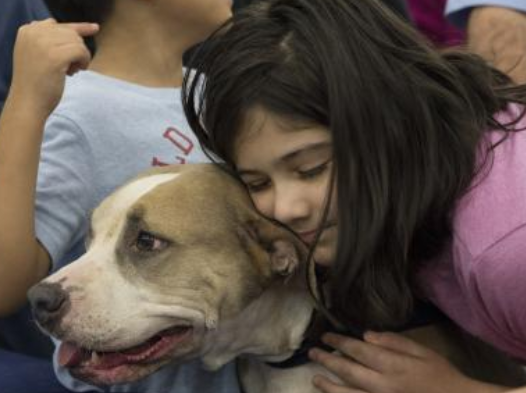America
Your canine friends can now pave way for cancer cure in humans

New York, July 13
In a breakthrough research, US scientists have identified dog genes that can hold potential cure for cancer in humans.
A team from the Broad Institute of Massachusetts Institute of Technology (MIT) and Harvard University, and the University of Georgia, conducted the largest-ever genomic sequencing study of canine tumours.
The study, published in the journal Scientific Reports, examined real-world clinical genomic data from 671 pet dogs with cancer across the US and analysed tumour samples to identify genetic mutations driving canine cancers.
These samples were then compared to a large database of nearly 25,000 human tumour samples to identify overlapping mutations between the two species.
The researchers identified 18 mutation "hotspots" that are likely primary drivers of canine cancers. Although 10 of these hotspots have not been previously reported in humans, the remaining eight were shared by humans and dogs.
Many of these hotspots can also be targeted with small molecule drugs that are already approved for human cancer patients. This means canine cancer patients will have increased access to highly effective precision treatments that can replace or augment traditional one-size-fits-all approaches such as chemotherapy, radiation, or surgery.
At the same time, the genetic data from canine tumours can accelerate the development of precision cancer drugs for humans. The findings also showed several previously unreported mutation hotspots in canine cancers, demonstrating their ability to reliably predict whether a tumour is somatic or germline based on tumour tissue alone.
"This study provides the most comprehensive genomic sequencing data on canine cancers, including several previously unsequenced types, and serves as a much-needed resource for comparative oncology," said Shaying Zhao, a professor at the University of Georgia and a co-author of the study.
By addressing the significant gap in genomic data on canine cancers, this study also ushers in an era of precision veterinary medicine through clinical genomics. Prior to this study, fewer than 2,000 canine tumours had been genetically sequenced. This study alone increased the number of canine tumours that have been sequenced by more than 33 per cent, the researchers said.

12 hours ago
Air India cancels multiple flights as Ethiopian volcanic ash drifts into Indian airspace

12 hours ago
India and EU discuss shared security challenges, early conclusion of defence partnership

12 hours ago
Netanyahu's office working on new date for visit, says Israeli PM has 'full confidence' in India's security under PM Modi

18 hours ago
After Hindu protest, global online retailer Shein removed Lord Ganesh blanket & doormat

19 hours ago
As Deol family battles grief, here's how Karan Deol fulfils final responsibilities for grandfather Dharmendra

19 hours ago
Juhi Chawla revisits her childhood obsession with Dharmendra’s classic ‘Sholay’

19 hours ago
Manoj Bajpayee talks about Nagaland and how its people are connected with nature

19 hours ago
Riteish Deshmukh shares how son Riaan helps him appreciate life’s simple joys

19 hours ago
Kareena Kapoor wishes ‘darling bro’ Armaan Jain on b’day: Can’t wait to celebrate soon

19 hours ago
Vijay Sethupathi welcomed on board the unit of Vetrimaaran's 'Arasan'

19 hours ago
President Murmu tells young IRS officers to uphold integrity, fairness

19 hours ago
Gujarat to hold padyatra in honour of Sardar Vallabhbhai Patel

19 hours ago
When Dharmendra brought the horrors - and bravery - of the 1962 war to all Indians' homes






















